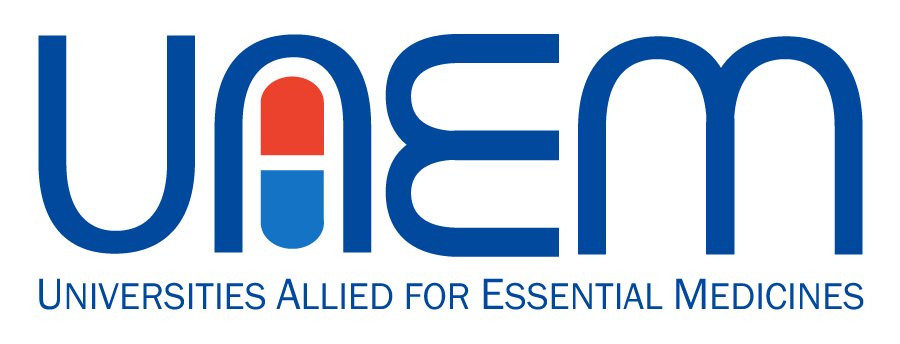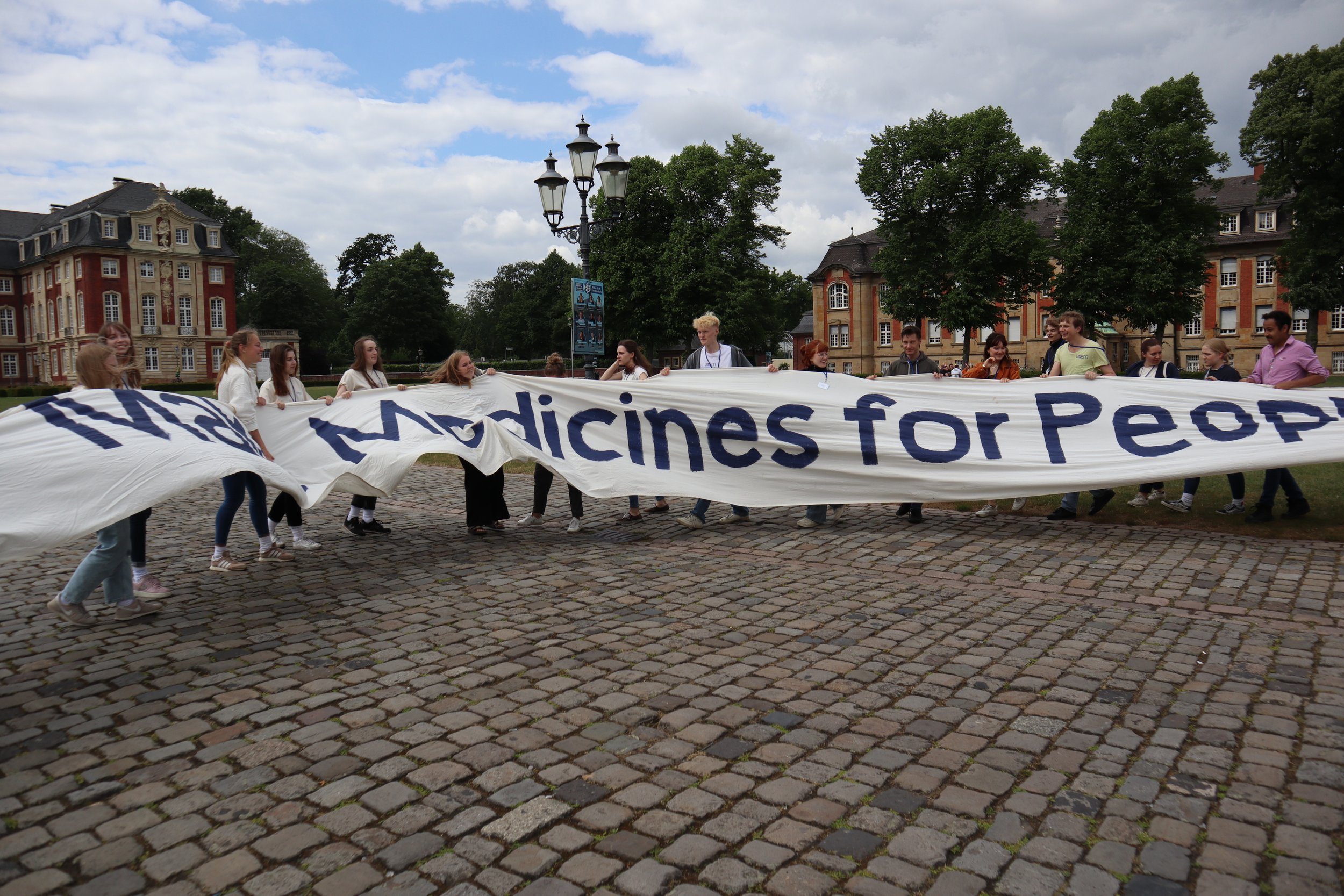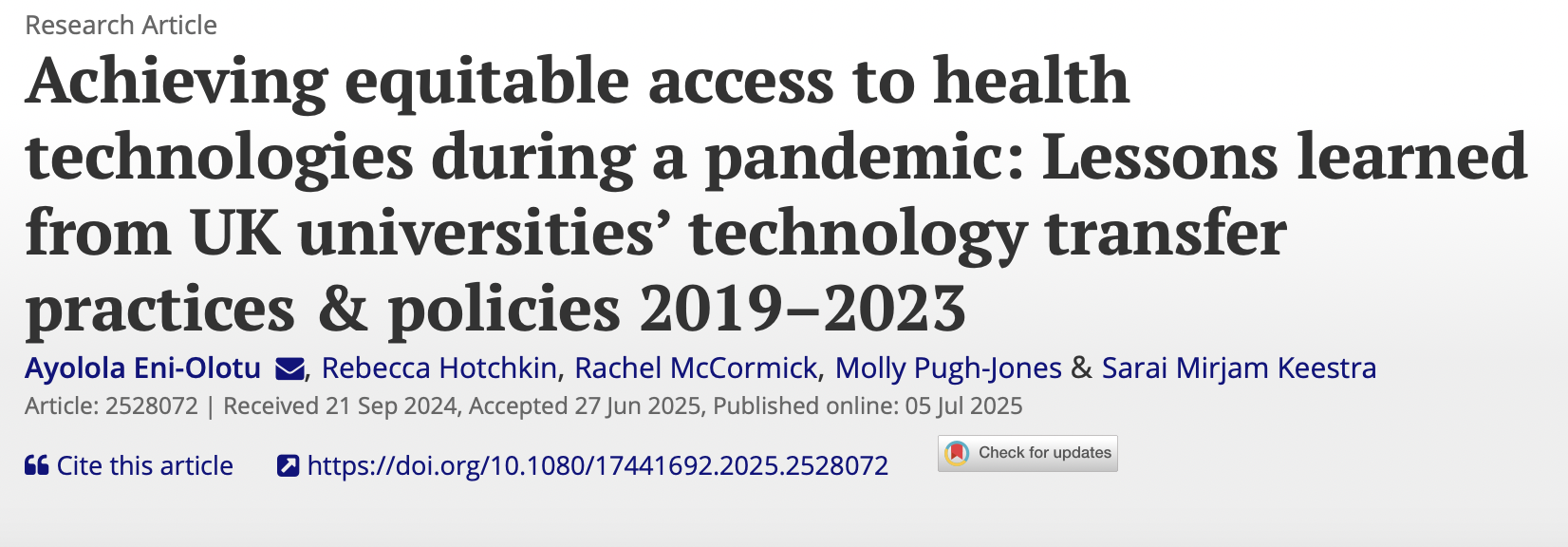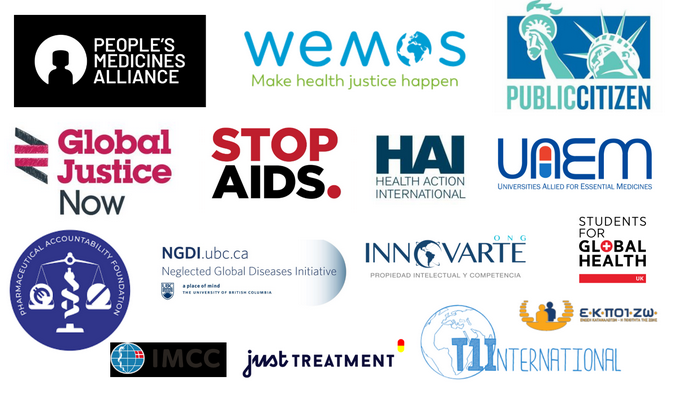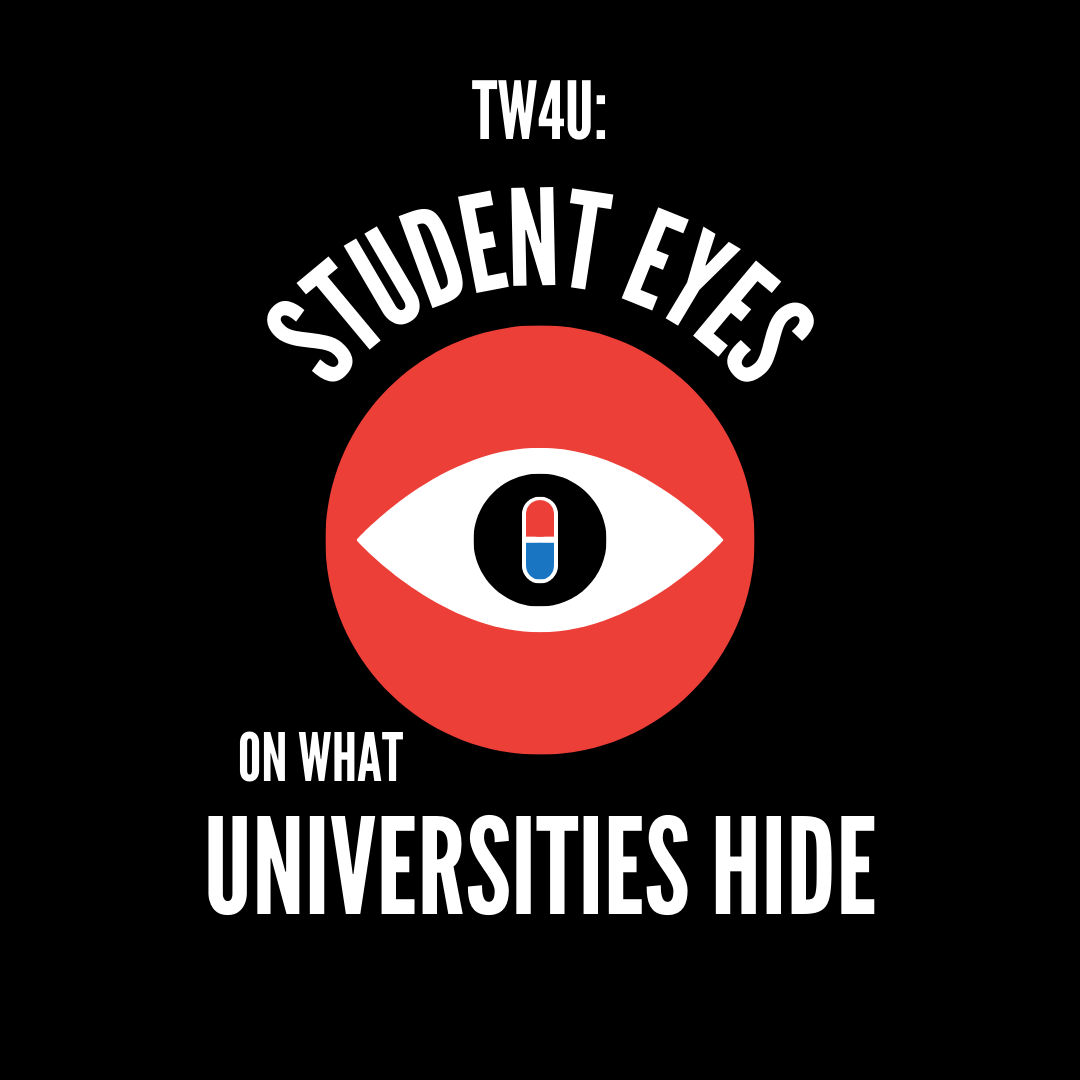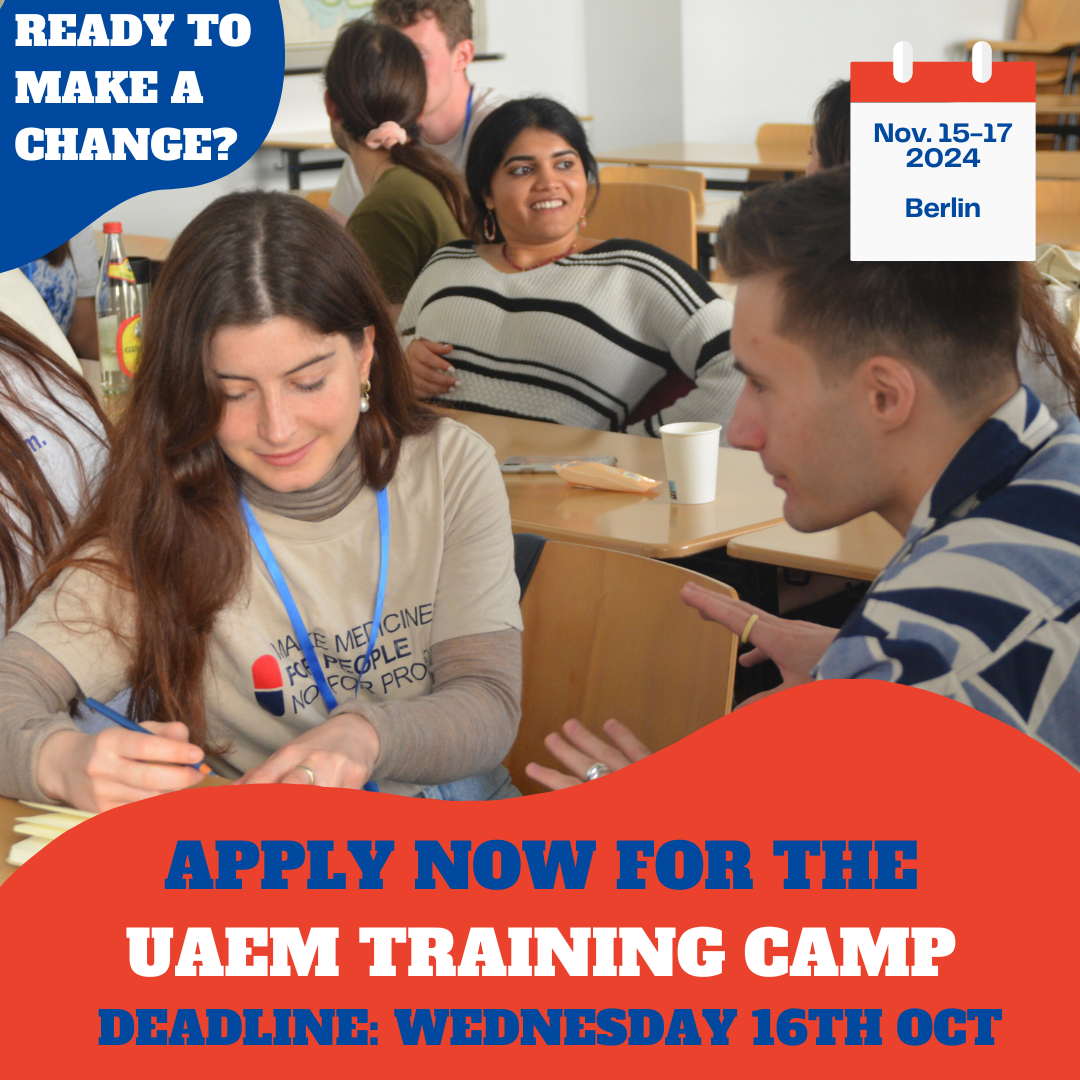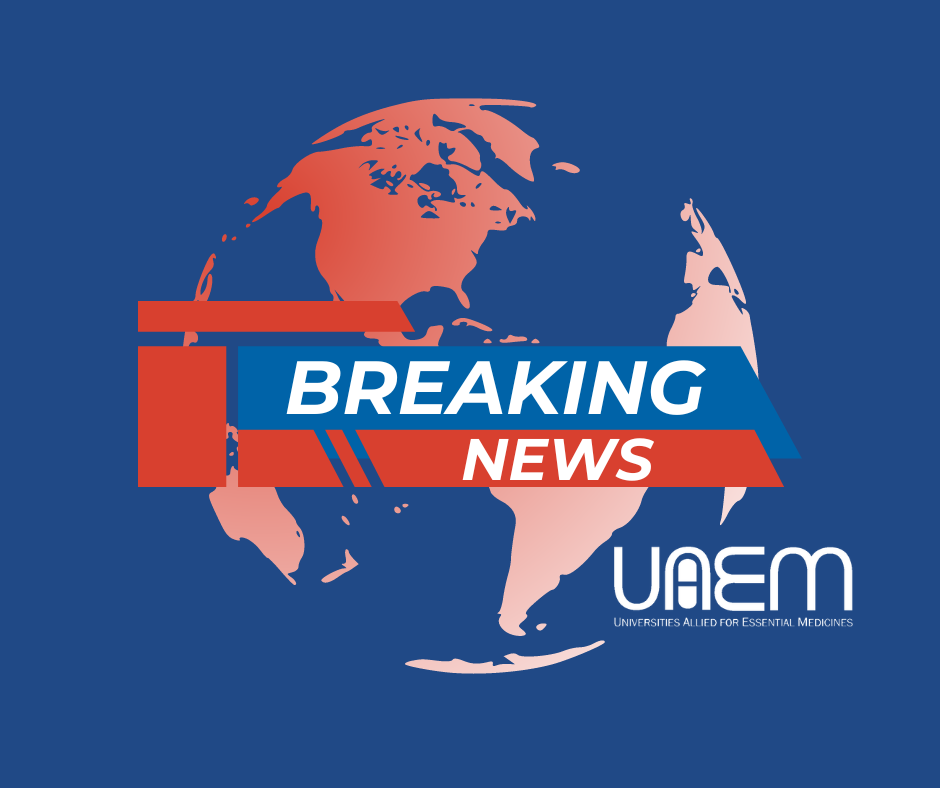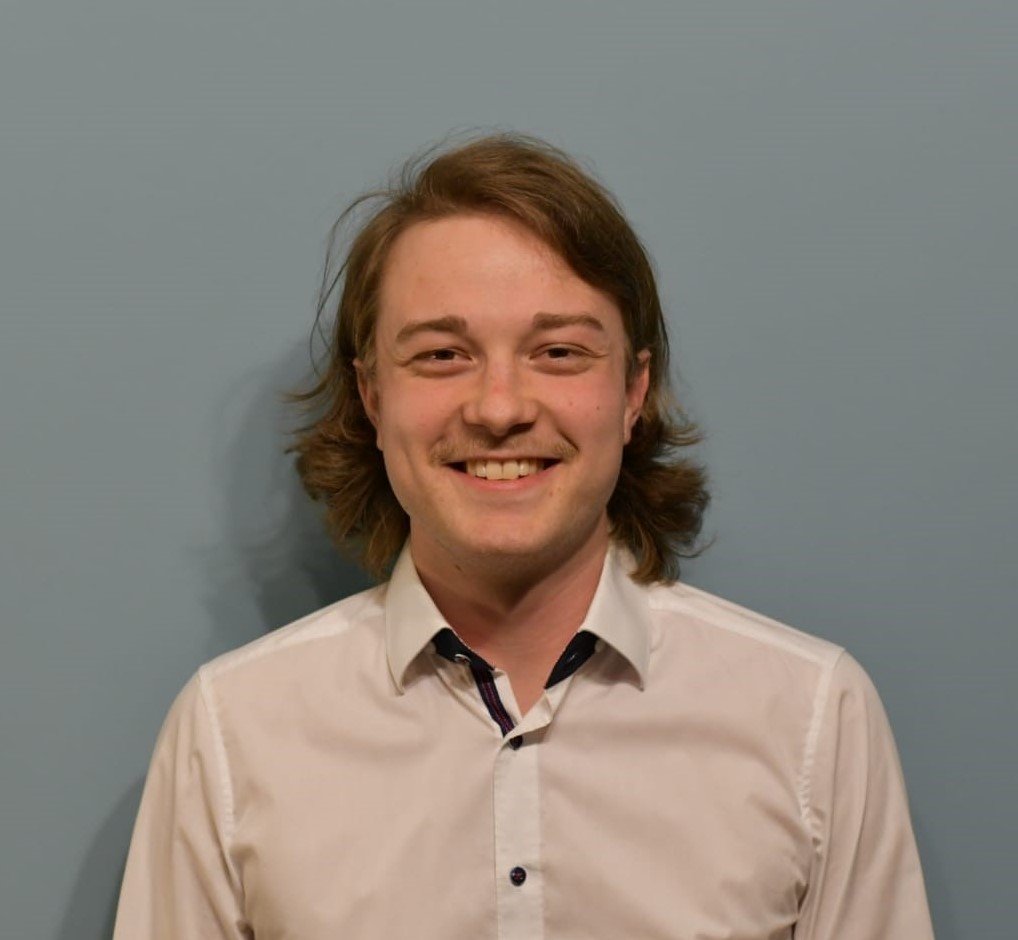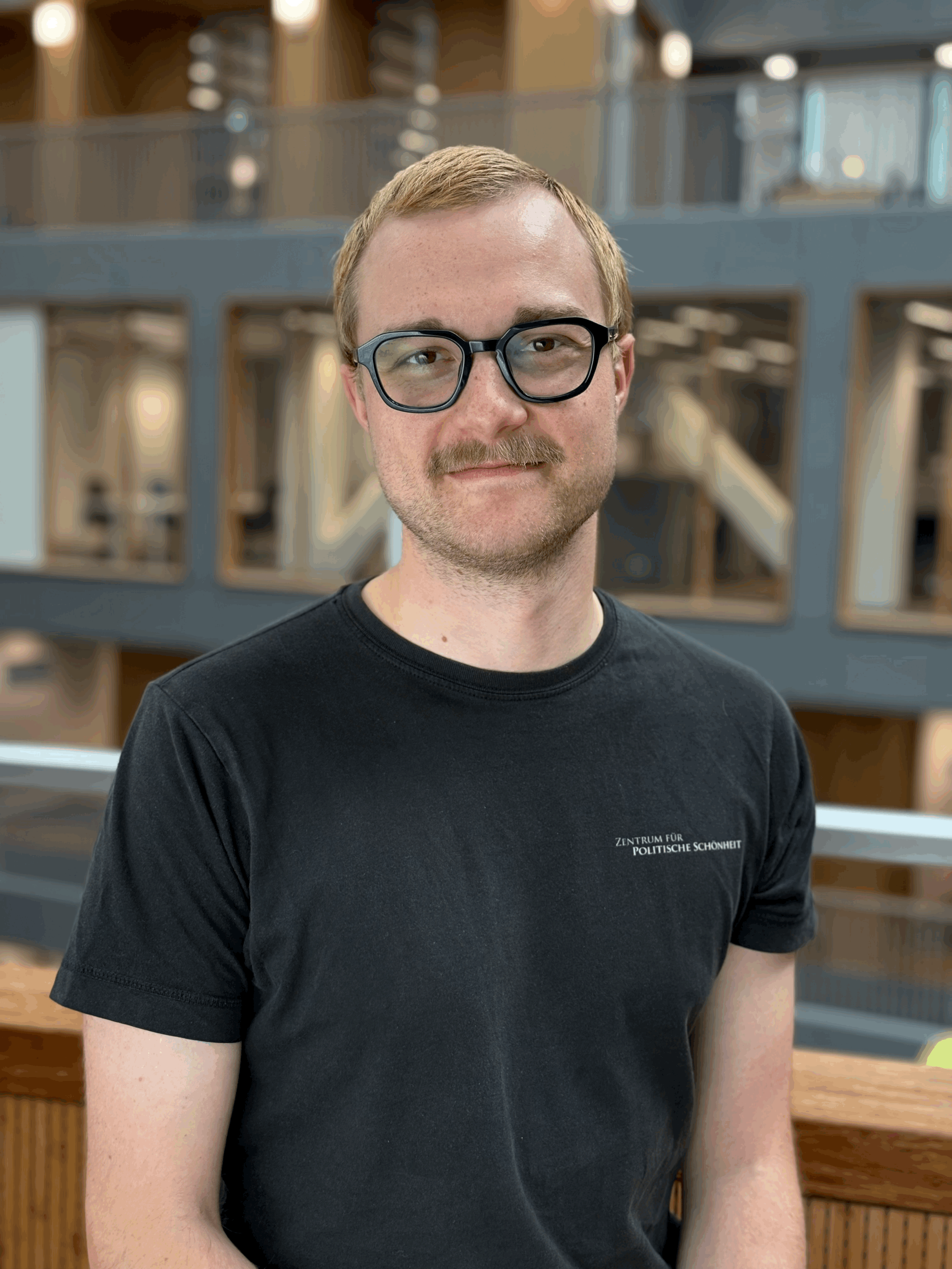UAEM Europe
UAEM Europe is made up of members across the continent working to push their universities to lead the way in policies that allow access to essential medicines and to research diseases that will meet the world’s greatest needs.
Join us to become a member or to get updates from our network.
Our Work
-
UAEM Europe Created this Chapter Handbook to use to get up to speed on UAEM projects and start your chapter.
-
A project of Universities Allied for Essential Medicines (UAEM), the University Report Card uses publicly-available data and university self-reported information to evaluate five key questions:
How and in what ways are universities investing in innovative biomedical research that addresses the neglected health needs of low- and middle-income countries (LMICs)?
When universities license their medical breakthroughs for commercial development, are they doing so in ways that ensure equitable access for people in low and middle income countries? Will these innovative treatments be made available at affordable prices?
Are universities empowering the next generation of global health leaders by educating them on the crucial impact that academic institutions can have on global health and access to medicines through their biomedical research and licensing activities?
How are universities promoting transparency in clinical trial results and academic medical publications?
Have universities committed to sharing the intellectual property, knowledge and data from their COVID-19 research in a way that makes these innovations globally accessible, particularly to people in LMICs?
-
“Take Back Our Medicines” (TBOM) is UAEM’s campaign is to ensure an equitable public return (i.e. guaranteed access to affordable medicines) on public investments made in biomedical research undertaken at universities and public research institutions. While about 2/3 of R&D costs are paid by the public, i.e. by taxpayers, and half of all new medicines entering the market originate in universities and public research institutions, publicly funded programmes attach insufficient upstream safeguards or conditions to public funds to ensure accessibility, affordability and availability of medical products resulting from public investments.
Our role is to create awareness about universities’ moral responsibility to manage public research funding they receive conscientiously and in the best interest of the welfare of the public. Our proposed solution is the Equitable Technology Access Framework (ETAF), a policy framework universities can implement into their licensing policies to improve their responsible knowledge stewardship through Socially Responsible Licensing (SRL). ETAF is building on the Global Access Licensing Framework Document (GALF) by adding alternative mechanisms on how universities and public research bodies could deal with their research.
The Latest:










Resources
UAEM Europe Coordinating Committee
The European Coordinating Committee is a panel of UAEM student and alumni leaders who are responsible for shaping UAEM's work in Europe as well as leading key projects throughout the course of the year.
UAEM Europe Board of Directors
The UAEM Europe Board of Directors advises the direction of the organization, holds fiscal responsibility, and acts as advisors to student-led campaigns. It is our core governing body, and is guided by our bylaws.
